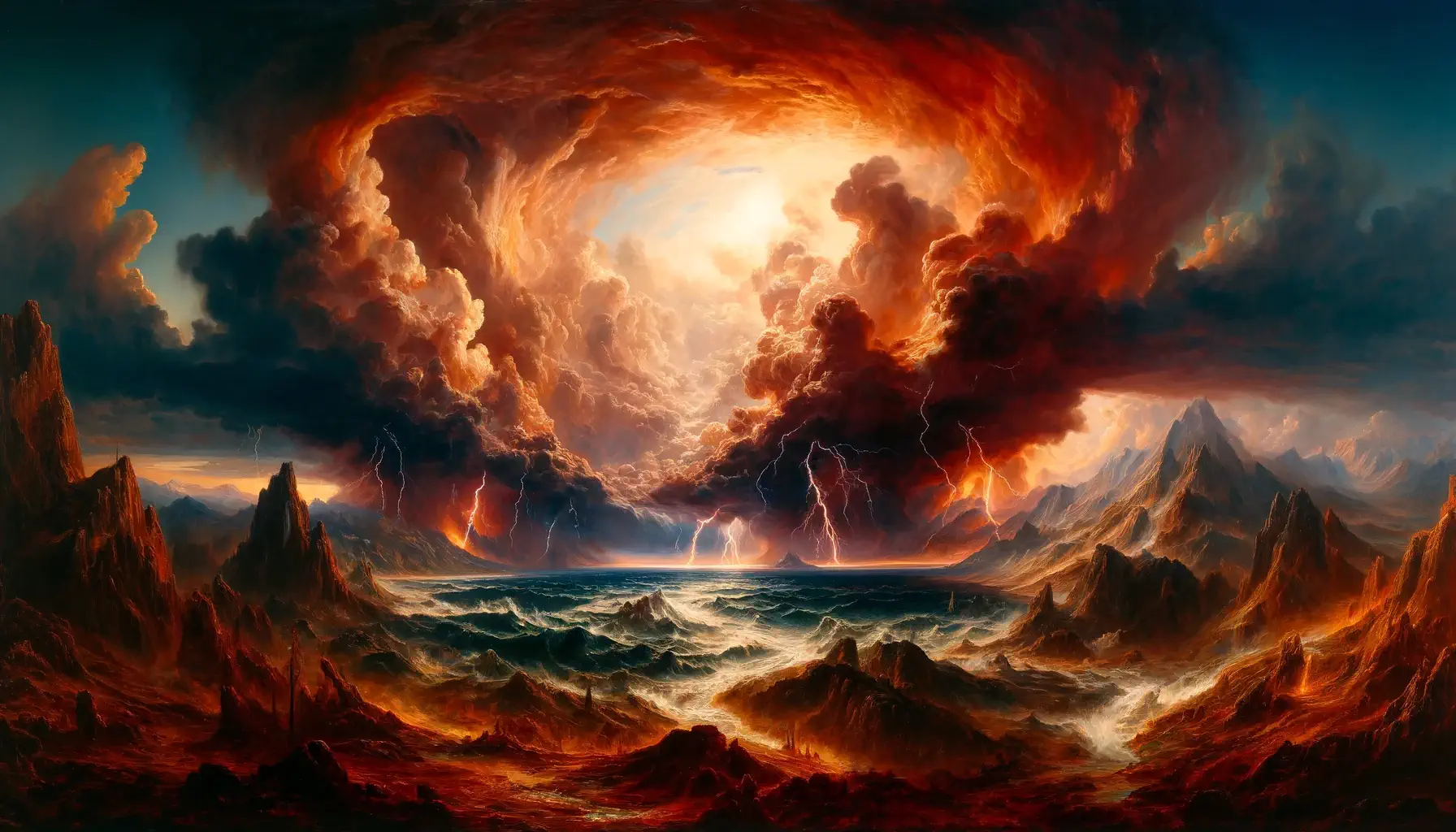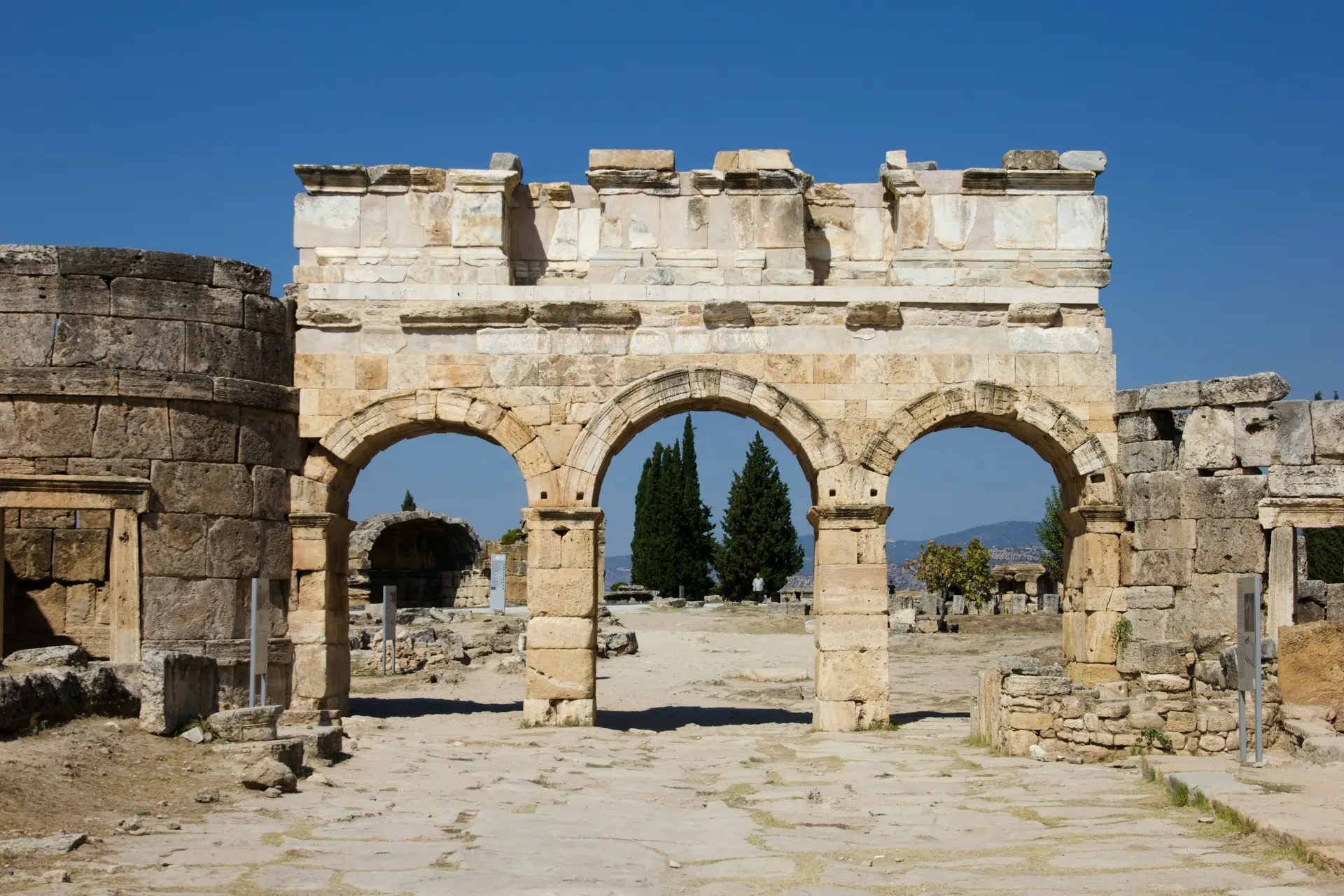We have a problem in our current culture. It is Hell. To be more precise it is our denial of Hell as a real place. Hell gets ignored, shaded over, or even turned into a joke. We tend to dwell on safer thoughts. Heaven for everyone. Hell for no one. Or if it exists, then it’s where the worst of the worst go but not the average person – right?
Scripture cuts through all that fog. Jesus spoke about judgment often and plainly. It is the reason He came to live and die so that He could rescue people He loves. If the Bible is true, and it is, then hell is real. It is a terrible place, and it is the just punishment for all mankind. The cross of Christ only makes sense in the light of it.
Jesus said, fear not those who kill the body but cannot kill the soul; rather fear Him who can destroy both soul and body (Matthew 10:28). That destruction is not annihilation but the complete and total isolation from God for all eternity.
There are so many misunderstandings regarding what Hell really is, and God’s just punishment for the wicked. Let’s take a look at what Scripture says about this sobering subject.
1) “There is no hell; everyone goes to heaven.”
This is called Universalism. It sounds kind. Everyone gets a happy eternity. Unfortunately, it is not biblical. Jesus spoke of two paths and two ends; a narrow gate that leads to life and a broad road that leads to destruction (Matthew 7:13-14). He warned that not everyone who says to Him, “Lord, Lord,” will enter the kingdom of heaven (Matthew 7:21-23). John says whoever believes in the Son has eternal life; whoever does not obey the Son shall not see life, but the wrath of God remains on him (John 3:36). In the final vision, there is a lake of fire for the unrepentant, not a universal welcome into God’s kingdom (Revelation 21:8).
The truth is that everyone is in, then Jesus did not need to die. The cross is either necessary, or it is theater. He did come and die. For our sins and in our place. It is necessary, and it was costly beyond words (Isaiah 53:5-6; Galatians 3:13). However, we must accept that free gift of life that He purchased on the cross.
2) “Hell is a party for people who like to sin.”
This seems to be a popular notion among people who reject the gift of live Jesus offers. The idea is that they enjoy their sinful life and hope to continue the party after they die. This is a blatant lie that Satan has fostered. Truth is this cliché belongs in cartoons, not in serious thought.
Jesus calls Hell outer darkness, where there is weeping and gnashing of teeth (Matthew 8:11-12; 22:13). He describes a furnace of fire (Matthew 13:41-42) and warns of a place where their worm does not die and the fire is not quenched (Mark 9:43-48). The rich man in Luke 16 is not swapping jokes; he is in anguish and begging for a drop of water, with an unbridgeable gulf fixed between him and relief (Luke 16:19-31). Revelation adds this: the smoke of their torment goes up forever and ever, and they have no rest, day or night (Revelation 14:11).
Hell is solitary, joyless, God-forsaken in the sense of blessing, yet under God’s righteous judgment. No fellowship. No laughter. No joy and no fun.
3) “Those who do not go to heaven are simply destroyed; there is no eternal punishment.”
This is called Annihilationism. It is the idea that those judged not deserving of Heaven are simply destroyed. It is an attempt to reduce the horror of God’s judgement by saying the lost simply go out like a candle.
The Bible contrasts eternal life with eternal punishment using the same word eternal in both halves of the sentence; if life is everlasting, so is punishment (Matthew 25:46). Revelation shows ongoing judgment, not a momentary flicker. It is reserved for the devil and his allies (Revelation 20:10), and the wicked – providing no rest, day or night (Revelation 14:11). Paul says the lost will suffer the punishment of eternal destruction away from the presence of the Lord and from the glory of His might (2 Thessalonians 1:8-9). Destruction in this verse means ruin; like a vessel shattered, not annihilated. Daniel foresaw some raised to everlasting life and others to shame and everlasting contempt (Daniel 12:2). God’s word leaves no doubt – the punishment for the lost will be eternal.
4) “We do not go to heaven or hell; we go somewhere else work off our sins for a while.”
Purgatory is a long-standing Roman Catholic teaching. I want to be fair here. The desire for righteousness is right; the method is not. Those who subscribe to Sola Scripture and study it knows that there is no support for a third realm where the dead go to be purified. In fact, scripture teaches the opposite as we read in Hebrews:
It is appointed for man to die once, and after that comes judgment (Hebrews 9:27).
For believers, to be absent from the body is to be present with the Lord (2 Corinthians 5:8; Philippians 1:23). Jesus told the repentant thief, today you will be with Me in paradise (Luke 23:43). No probationary holding area in between life and eternity.
Most important consider the final words of Jesus when He said, “It is finished” (John 19:30). There was nothing more to be done. He had done it all. He had taken on Himself all sins of all people for all time. There is no reason to work off a sin debt. Hebrews says by a single offering He has perfected for all time those who are being sanctified (Hebrews 10:14). The fire of 1 Corinthians 3:12-15 tests the quality of each believer’s work and may strip away shoddy labor, yet the person is saved. That is loss of reward; not postmortem payment for sin. Christ paid in full.
5) “Hell is for really bad people. Killers and rapists. Not average folks.”
God does not grade on a curve. He judges by His holiness. All have sinned and fall short of the glory of God (Romans 3:23). The wages of sin – any sin – is death (Romans 6:23). James says if you break one point of the law you are accountable for all of it (James 2:10). Jesus takes sin to the heart level; anger is the seed of murder, lust is the seed of adultery both of which he said break the law and result in sin (Matthew 5:21-22, 27-28). The truth is that any sin separates us from God and anything we do in our own effort is sinful as Romans 14:23 confirms:
“Whatever does not proceed from faith is sin.”
When even good deeds are sinful, driven from a sinful motivation then who can stand here on their own merits. No one.
Good news; the same passage that warns also saves. Such were some of you, Paul says, after listing serious sins, but you were washed, you were sanctified, you were justified in the name of the Lord Jesus Christ (1 Corinthians 6:9-11). Hell is real; grace is greater. It is no automatic though – we must embrace the gift of God and repent from our sin.
6) “When we die, that is the end. Lights out.”
The idea that we cease to exist when we die is router in Materialism. It is the fallback for those who deny there is a God. It tries to keep a brave face, but Scripture says otherwise to this belief. Jesus offers the proof of an empty grave. He is no longer laying where he was buried but lives today. He promises us that death is not the end; it is an entrance into eternity.
Jesus promised a resurrection of life and a resurrection of judgment (John 5:28-29). Daniel said the same thing long ago (Daniel 12:2). God will bring every deed into judgment, with every secret thing, whether good or evil (Ecclesiastes 12:14). In Luke 16 where Jesus tells of Lazarus and the Rich Man, there is conscious existence after death. Finaly Hebrews is plain in its reading – after death comes judgment (Hebrews 9:27). If we ceased to exist then judgement would not make sense.
The truth is that we live forever. The only question is where and with whom.
So What Is Hell, Biblically?
Definition. Biblically there are several words and/or concepts used to describe Hell and the final judgement.
- Sheol is an Old Testament term used to describe the realm of the dead in general. It is often called both the grave or pit in some writings. This resting place for the dead was thought to be divided into two parts – Abraham’s bosom where righteous went and a place of torment reserved for the wicked. (Genesis 37:35; Job 7:9; Psalm 16:10)
- Hades is a New Testament term from the Greek which is generally considered equal to Sheol. It is the unseen realm of the dead – reserved only for the unrighteous now. In Luke 16 we see the wicked are in conscious anguish in Hades while awaiting final judgment. Hades itself will be emptied and then thrown into the lake of fire. (Luke 16:23; Revelation 20:13-14). Where do the elect of Christ go when they die? 2 Corinthians 5:8 assures us that is we are no longer inhabiting our body we will immediately be in the presence of Christ.
- Gehenna is a term used by Jesus when discussing the final judgment of those who reject His gift of salvation. It is a judgment that comes after the resurrection of the saints. Jesus warns of this judgement that it will be an unquenchable fire and the worm (the spirit of man) will not die. (Matthew 10:28; Mark 9:43-48; Isaiah 66:24)
- The lake of Fire in Revelation is the final, everlasting destiny of the wicked. This is what is referred to as the second death. It is distinct from Hades which will also be cast into the lake of fire. (Revelation 20:10, 14-15)
Nature. Hell is the just, and everlasting punishment that awaits those who reject God’s authority and gift of Salvation. It is the just punishment for failing to exalt and glorify God. It will be the complete and total exclusion from the joyful presence of the Lord and exposure to His righteous judgment (Matthew 25:46; 2 Thessalonians 1:8-9; Revelation 14:10-11). The imagery of fire, darkness, ruin, and anguish is not decorative. It is meant to make us shudder and turn from our sin.
Purpose. Hell vindicates God’s holiness and justice and shows the weight of sin. When the smoke clears heaven shout: “True and just are His judgments” (Revelation 19:1-2). This is not cruelty – this is simply giving people what they want; an eternity without God.
This is heavy. It should be. But there is good news…
Why The Gospel Is the Best News in the World
God is patient; not wishing that any should perish, but that all should reach repentance (2 Peter 3:9). God commands all people everywhere to repent because He has fixed a day when He will judge the world by a Man He has appointed, and He has given assurance of this by raising Him from the dead (Acts 17:30-31).
Christ’s death is sufficient for all and effective for those who believe. Whoever believes in Him shall not perish but have eternal life; whoever does not believe is condemned already because he has not believed in the name of the only Son of God (John 3:16-18). God remains just while justifying the one who has faith in Jesus (Romans 3:24-26).
The call is real; the door is open. Confess with your mouth that Jesus is Lord, believe in your heart that God raised Him from the dead, and you will be saved; everyone who calls on the name of the Lord will be saved (Romans 10:9-13).
Grace forgives and changes. It trains us to say no to ungodliness and to live upright, eager for good works (Titus 2:11-14). God finishes what He starts; His sheep hear His voice; He holds them fast (Philippians 1:6; John 10:27-29). No cheap grace. No false assurance. Real repentance. Real perseverance.
A Final Word
Hell is not a topic for debate – it exists! It is a reality Jesus died to keep you from. The Bible is God’s love letter to humans – it presents His eternal plan and the Savior who loved us enough to die for us.
If you have never turned your life over to Christ and accepted His free gift of salvation and eternal life, then do it now. If you belong to Him then take heart; there is therefore now no condemnation for those who are in Christ Jesus; set your eyes on the One who loved you and gave Himself for you.



